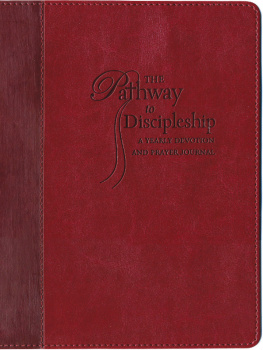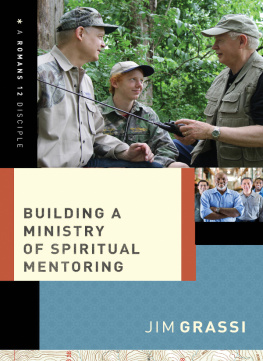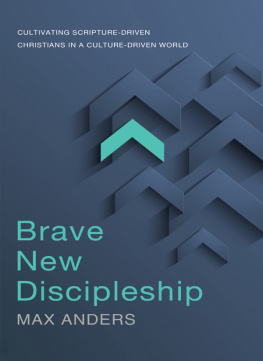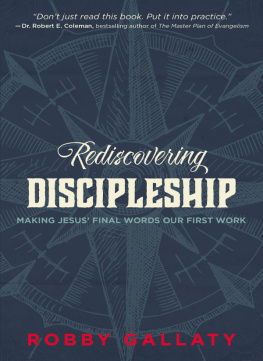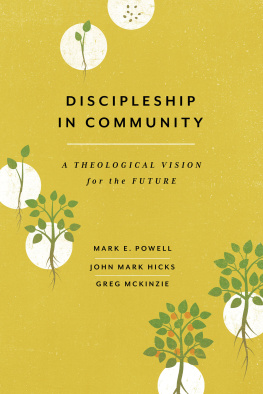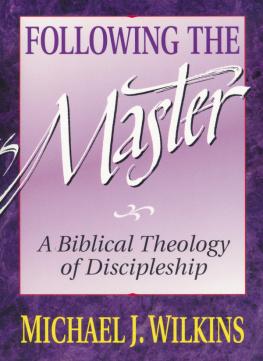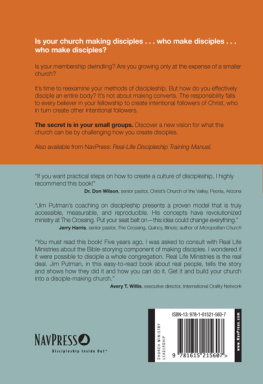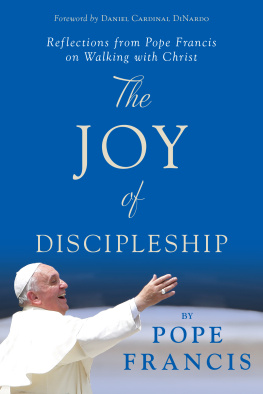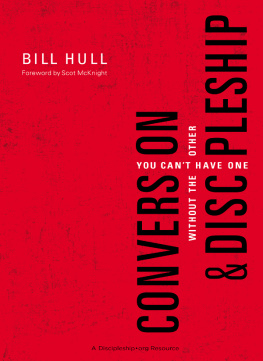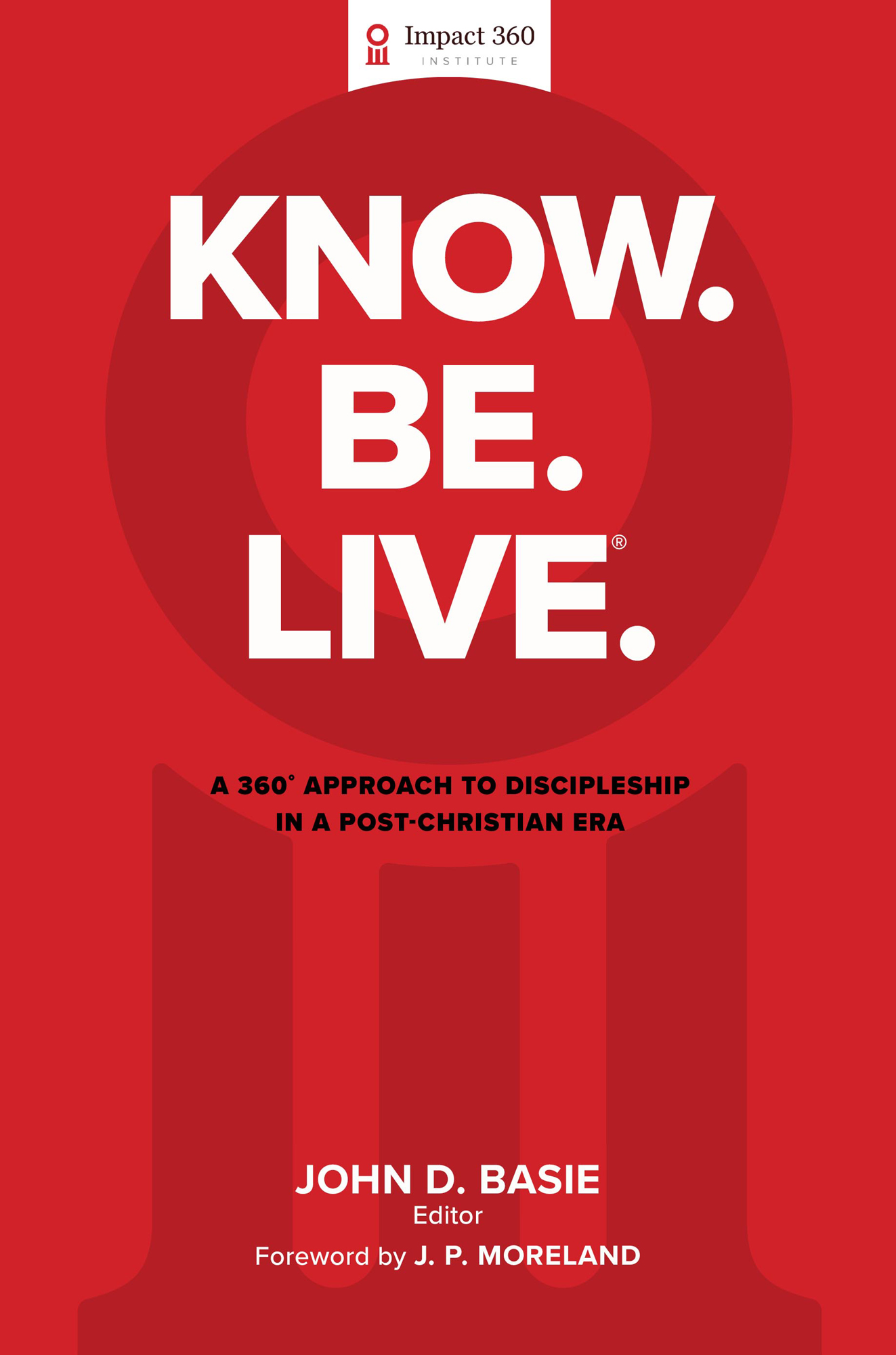John D. Basie - Know. Be. Live.®: A 360 Degree Approach to Discipleship in a Post-Christian Era
Here you can read online John D. Basie - Know. Be. Live.®: A 360 Degree Approach to Discipleship in a Post-Christian Era full text of the book (entire story) in english for free. Download pdf and epub, get meaning, cover and reviews about this ebook. year: 2021, publisher: Forefront Books, genre: Religion. Description of the work, (preface) as well as reviews are available. Best literature library LitArk.com created for fans of good reading and offers a wide selection of genres:
Romance novel
Science fiction
Adventure
Detective
Science
History
Home and family
Prose
Art
Politics
Computer
Non-fiction
Religion
Business
Children
Humor
Choose a favorite category and find really read worthwhile books. Enjoy immersion in the world of imagination, feel the emotions of the characters or learn something new for yourself, make an fascinating discovery.

- Book:Know. Be. Live.®: A 360 Degree Approach to Discipleship in a Post-Christian Era
- Author:
- Publisher:Forefront Books
- Genre:
- Year:2021
- Rating:3 / 5
- Favourites:Add to favourites
- Your mark:
Know. Be. Live.®: A 360 Degree Approach to Discipleship in a Post-Christian Era: summary, description and annotation
We offer to read an annotation, description, summary or preface (depends on what the author of the book "Know. Be. Live.®: A 360 Degree Approach to Discipleship in a Post-Christian Era" wrote himself). If you haven't found the necessary information about the book — write in the comments, we will try to find it.
Over the last few years, the literature on Generation Z has grown rapidly. However, there is little that directly addresses the destructive cultural challenges to proactive disciplemaking in this generation. Know. Be. Live. offers a holistic 360-degree approach to discipleship in a post-Christian era. It combines expert thought on faith and culture to equip Christ-following parents of teenagers, college students, campus ministers, and pastors.
Addressing the obstacles to deep discipleship and spiritual formation within Gen Z, Know. Be. Live. approaches this subject matter from a comprehensive biblical perspective that ties together the intellectual (Know), character (Be), and calling (Live) elements of discipleship.
Contributors: Philip Alsup, John Basie, Hunter Baker, Ed and Dana Bort, Stephanie Shackelford, Gene Fant, Nathan Finn, Melissa Pellew, Sean McDowell, J. P. Moreland, Jonathan Morrow, Jacob Shatzer, John Stonestreet, Kyle Strobel, and John W. White III.
Praise for KNOW. BE. LIVE.
With a focus on serious Christian thinking, whole life discipleship, spiritual formation, cultural engagement, and readiness for ministry, these timely and thoughtful essays will serve as a remarkable resource for readers.
David S. Dockery, president, International Alliance for Christian Education and distinguished professor of Theology, Southwestern Baptist Theological Seminary
Know. Be. Live. is a much-needed resource that will provide Christ-following business leaders, ministry leaders, and anyone who has the opportunity to develop Gen Z leaders with tools to disciple them in a transformative, biblically-faithful way.
Cheryl Bachelder, board member at Chick-fil-A Inc. and US Food Holdings Corp., author, Dare to Serve
When co-founding Impact 360 Institute fifteen years ago, my husband, John, and I were burdened to equip the next generation of Christlike believers to Know, Be, and Live out the Gospel. The Institute has far exceeded our vision to include multiple programs, resources, and now, the book you hold in your hand. For Christian leaders discipling the next generation, youll find this to be an excellent resource to challenge and inspire you to holistically develop Gen Z and beyond.
Trudy Cathy White, Chick-fil-A ambassador
Know. Be. Live. is for all who desire to live faithfully and for all those who want to encourage and equip the younger generation to do just that. Dig in; there is much wisdom in these pages.
Samuel Dub Oliver, president, Union University
Know. Be. Live. is an absolute treasure trove of insight for discipling Gen Z. An ensemble of experienced experts navigate readers through the conundrums of our strange and confused cultural moment with biblical clarity and conviction. If you care about seeing up-and-coming generations marked by a deep passion for the Great Commission, the Great Commandment, and the Cultural Mandate, then this is the resource for you!
Thaddeus Williams, professor of Systematic Theology, Biola University/Talbot School of Theology, author, Reflect, Confronting Injustice without Compromising Truth, and God Reforms Hearts.
John D. Basie: author's other books
Who wrote Know. Be. Live.®: A 360 Degree Approach to Discipleship in a Post-Christian Era? Find out the surname, the name of the author of the book and a list of all author's works by series.

